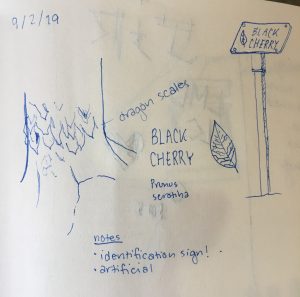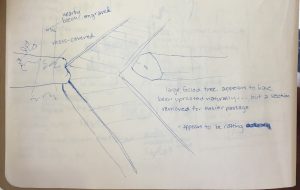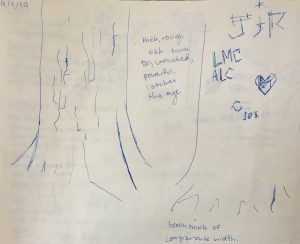For me, the best stories have always been connected to nature. Perhaps it is because of nostalgia. Growing up in a New Jersey suburb doesn’t allow for much time to relax or breathe, or for children to explore the outdoors. My sister and I escaped to the park down the street, but instead of the brightly colored, sun-baked slides and swings, we were drawn to the creek and the low-hanging branches on the far side. Playing “pretend” had a time and a place; the only proper place was by the creek.
It began with movies and books. At 6 and 8 years old, we were Harry Potter and Hermione Granger. We brandished fragile twigs that we found on the ground, fighting off invisible villains with our makeshift wands. At 10 and 12 years old, we were members of Thorin Oakenshield’s company, slowly but surely making our way to the Lonely Mountain- or rather, the Lonely Raised Patch of Land on the Other Side of the Creek- to reclaim our gold from a greedy dragon. As the years passed, we drifted away from the constraints of existing fiction. Hannah and I began the main characters of our own narrative, fishing storylines from thin air and building from each others’ ideas. The wind whispered prophecies, rejoicing at the arrival of the new heroes. A squirrel chittering at us from a tree was a servant of the dark forces. An acorn falling from a tree was actually a calculated attack against us; as we all know, an acorn is a devastating magical weapon that can raze entire villages if it passes into the wrong hands.
Nature is hard to predict. Whenever we created a story in the park, it felt as if another mind was there with us, throwing us new ideas and plot twists. Our narrative transformed our surroundings, and our surroundings transformed our narrative. As I grew older, such things became harder to see. Transformations became less obvious. I wonder what 10-year-old me would see if they visited Wooster.



